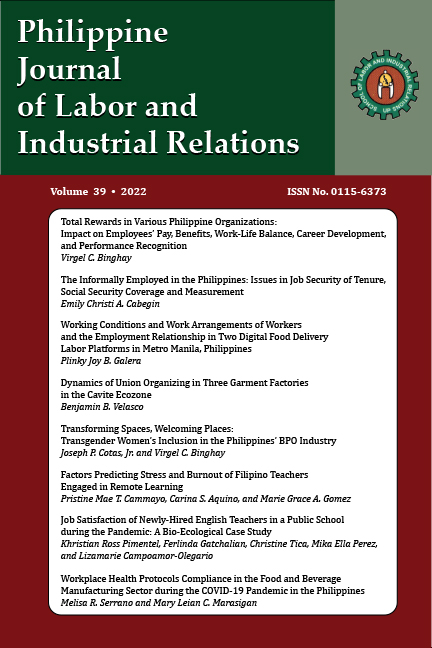Dynamics of Union Organizing in Three Garment Factories in the Cavite Ecozone
Abstract
Using mixed methods, the research studied the motivations, methods and dynamics of organizing unions in three garment manufacturers in the Cavite export processing zone in the Philippines. The study revealed decent work deficits: low pay, inadequate benefits, insecure jobs, inhumane treatment, excessive production quota, and cases of gender-based violence. The study found the existence of tempos: invisible workers who are hired for fixed terms without employment contracts and do not receive mandated minimum benefits. The motivation for workers to unionize are, in order of rank, the desire to have higher pay, better benefits, more secure jobs and more humane treatment from management. John Kelly’s mobilization theory and its categories such as interest, opportunity and forms of collective action were relevant in analyzing the process of unionization. Similar to Kelly, the research posits that workers use a calculus of the rewards and risks of organizing to determine their support or opposition to unions.


